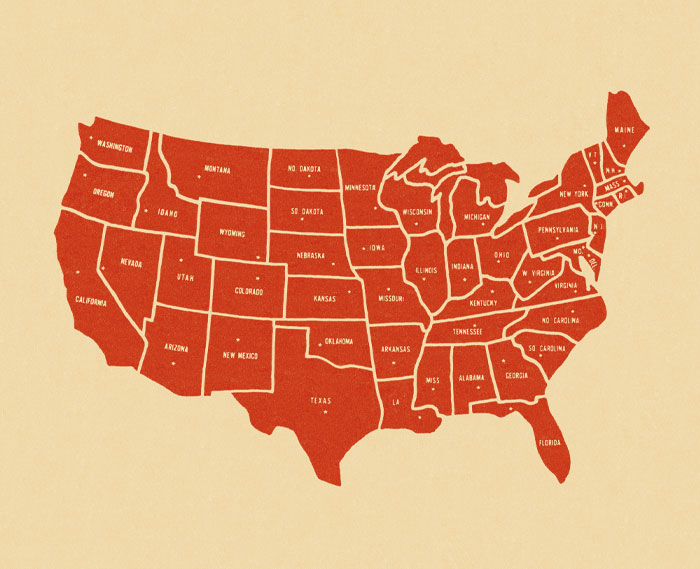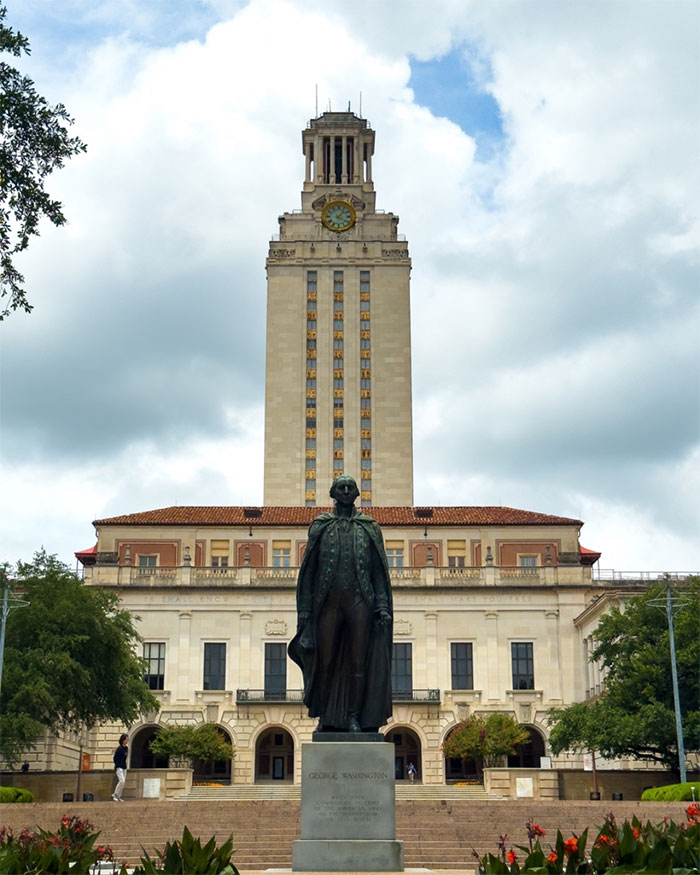New estimates based on educational outcomes, literacy rates, and national assessments like NAEP and PIAAC reveal how IQ levels vary across the US.
These numbers aren’t based on stereotypes. They come from researchers who analyzed hard data, then adjusted it to compare all 50 states fairly.
Here’s where your state lands on the list, from highest to lowest.
How Is the Average IQ in the United States Determined?

IQ estimates in the US are modeled using data from education-based assessments like the National Assessment of Educational Progress (NAEP) and the Program for the International Assessment of Adult Competencies (PIAAC), which measure achievement, literacy, and problem-solving skills.
Researchers then combine these results with demographic and education-level statistics from each state. The final rankings reflect adjusted estimates of cognitive performance on a state-by-state basis (per NCH Stats).
1. Massachusetts Leads the Nation
Massachusetts ranks first nationwide with an average IQ of 104.3. It’s home to top-tier institutions like Harvard, MIT, and Tufts, which help foster a culture of academic excellence.
The state exceeds the national average by 27.2% in post-secondary degree attainment and has fewer adults without a high school diploma (per NCH Stats).
The Statistical Atlas reports that Massachusetts also leads in advanced degrees, with 90.7% more doctorates, 55.9% more master’s degrees, and 22.6% more bachelor’s degrees than the national average.
A strong education system supports these numbers. Fewer residents fall into lower attainment categories like “Some High School” or “Less than High School,” which are 29% and 21% below national levels, respectively.
2. New Hampshire (104.2)
New Hampshire comes in second with an estimated average IQ of 104.2. The United States Census Bureau reports that 24.6% of residents hold a bachelor’s degree, while 16.2% have earned a graduate or professional degree.
Combined, that puts the state’s higher education attainment at 40.7%, well above the national average of 36.2%.
A strong commitment to foundational education is also clear: 27% of residents list a high school diploma as their highest completed level, showing widespread K–12 completion.
Undergraduate college enrollment stands at 21.8% (per NCH Stats), underscoring New Hampshire’s broad participation in higher education.
3. North Dakota (103.8)
North Dakota ranks third with an estimated average IQ of 103.8. According to the United States Census Bureau, only 5% of adults lack a high school diploma, and 94.5% of those aged 25 or older have earned at least that level, well above the national average of 89.8%.
Despite the high IQ estimate and strong high school completion rates, the state falls slightly below the national average in higher education.
Just under 36.2% of residents hold a bachelor’s degree or higher, and only 10% have completed a postgraduate program, compared to the 14% US average.
4. Vermont (103.8)
Vermont shares the third spot with an average IQ of 103.8. The state invests roughly $23,000 per student annually, one of the highest per-student spending rates in the country.
As a result, students regularly outperform national averages in core subjects like reading and math, according to the National Assessment of Educational Progress.
This funding helps reduce class sizes and encourages strong community involvement, improving student-teacher dynamics.
However, educational gaps remain, particularly due to socioeconomic inequality (per Smartick).
5. Minnesota (103.7)

Minnesota takes the fifth spot with an average IQ of 103.7. The state has a strong public education system, with 63% of residents aged 25 to 44 having completed some form of post-secondary education.
However, disparities persist: high school completion among Black residents stands at 90.1%, while the rate drops to 75.2% for Hispanic residents.
These figures underline the importance of focused educational programs for underrepresented groups. The Minnesota Department of Education continues implementing targeted efforts to bridge these gaps.
6. Maine (103.4)
Maine joins the top tier with an average IQ of 103.4. One standout factor contributing to its performance is the English proficiency of its foreign-born population, an impressive 91.3% demonstrate strong language skills.
This high level of language fluency supports smoother community integration and helps sustain a productive educational environment (per NCH Stats).
7. Montana (103.4)
Montana ties with Maine, posting an average IQ of 103.4. The state’s rural character is balanced by strong educational outcomes: Census Reporter notes a high school graduation rate of 94.1%, above the national average.
In higher education, 34.6% of Montana residents hold a bachelor’s degree or more, and 12% have earned postgraduate degrees, an 80% margin above the national average of 15%.
8. Iowa (103.2)

Iowa ranks eighth with an average IQ of 103.2. According to the US Census Bureau, it outpaces national averages in high school completion, with 93.5% of adults aged 25 and older having earned their diplomas.
About 32.3% of Iowa adults hold a bachelor’s degree or higher, supporting the state’s broader economic stability.
However, disparities persist: urban centers like Des Moines and Iowa City benefit from university access, while rural regions face challenges in higher education infrastructure.
9. Connecticut (103.1)
Connecticut ranks ninth with an average IQ of 103.1. US Census Bureau data shows that 42.9% of residents aged 25 and older hold a bachelor’s degree or higher, above the national benchmark.
Additionally, 25.5% have a high school diploma as their highest level of attainment, while 15.5% report having attended some college without earning a degree.
These figures suggest a broadly educated population.
However, only 64.5% of the population aged 3 and older is enrolled in K–12 education, slightly under the 67.8% national average.
This may reflect higher rates of private schooling or demographic variation.
10. Wisconsin (102.9)
Rounding out the top 10, Wisconsin holds an average IQ of 102.9. It has a strong track record in high school education, with 93.7% of residents having at least a diploma, according to NCH Stats.
However, when it comes to higher education, the state falls a bit short: 33.8% of adults hold a bachelor’s degree or higher, trailing the national average of 36.2%.
11. Kansas (102.8)
Kansas ranks eleventh with an average IQ of 102.8. The state is home to a well-educated workforce, with 35.8% of residents having earned a bachelor’s degree or higher, and 25.1% holding a high school diploma as their highest level of attainment.
According to the US Census Bureau, 68.7% of Kansas students are enrolled in K–12 education, which is close to national averages.
12. New Jersey (102.8)
New Jersey also scores an average IQ of 102.8, matching Kansas. According to the Statistical Atlas, 43.9% of adults aged 25 and older have completed a post-secondary degree, well above the national benchmark.
Of that group, 23.1% hold a bachelor’s degree.
The state also shows strength in basic education: 45% of residents report a high school diploma as their highest level of attainment.
13. South Dakota (102.8)
South Dakota shares the same average IQ of 102.8 as Kansas and New Jersey.
According to the Statistical Atlas, 52.7% of the population lists high school as their highest level of education, indicating a strong baseline academic achievement.
Additionally, 38.5% of adults aged 25 and older have earned a post-secondary degree, underscoring the state’s commitment to continued education.
14. Wyoming (102.4)
Wyoming ranks 14th with an average IQ of 102.4. The state has earned national recognition for its education system, ranking second in higher education and 19th for Pre-K–12 performance (US News).
Wyoming’s high school graduation rate is 81.8%. According to NAEP, the state’s average math score is 281, above the national average of 274.
15. Nebraska (102.3)

Nebraska ranks 15th with an average IQ of 102.3. The state blends vocational education with traditional academics, offering a balanced approach to learning.
According to Data USA, women make up 56.8% of the college student population, compared to 43.2% for men. Nebraska also maintains a strong college admission rate of 80.2%, with popular majors in Business Administration, Nursing, and Liberal Arts.
16. Virginia (101.9)
Virginia ranks 16th with an average IQ of 101.9. The state benefits from a robust tech-military corridor and a strong educational profile, with 44.2% of residents holding post-secondary degrees.
According to the Statistical Atlas, Virginia has 8.5% fewer residents with only a high school diploma as their highest level of education than the national average.
Additionally, the state has a lower percentage of residents without any high school education, compared to the national average of 13%.
17. Washington (101.9)
Washington also reports an average IQ of 101.9, tying with Virginia. The state stands out for its higher education attainment: 43.3% of residents hold a post-secondary degree, outpacing the national average.
According to NCH Stats, fewer Washingtonians have only a high school diploma, and the state exceeds national levels in all advanced degree categories, like bachelor’s, master’s, professional, and doctorate.
18. Ohio (101.8)

Ohio ranks 18th with an average IQ of 101.8. According to the Statistical Atlas, 54.4% of residents report a high school diploma as their highest level of education, above the national average.
In contrast, only 35.1% of Ohio adults hold a post-secondary degree, trailing the U.S. average of 38.5%.
19. Indiana (101.7)
Indiana ranks 19th with an average IQ of 101.7. According to the Statistical Atlas, 55.1% of adults aged 25 and older have a high school diploma as their highest level of education, above the national average.
Meanwhile, 33% of residents have completed a post-secondary degree, placing the state slightly below the national average in higher education attainment.
20. Colorado (101.6)
Colorado’s average IQ is 101.6, ranking 20th. The state’s high school graduation rate is 83.1%, reflecting steady performance in secondary education.
According to the National Center for Education Statistics (NCES), Colorado’s thriving STEM job market is also considered a contributing factor in boosting the state’s overall cognitive metrics.
21. Pennsylvania (101.5)
Pennsylvania ranks 21st with an average IQ of 101.5. The state is home to numerous well-regarded universities, and 35.4% of its adult population has earned a bachelor’s degree or higher.
According to the US Census Bureau, 66.9% of students are enrolled in K–12 education, which is on par with the national average.
22. Idaho (101.4)
Idaho’s average IQ is 101.4, placing it 22nd nationally. According to the US Census Bureau, 32.1% of Idahoans aged 25 and older have attained a bachelor’s degree or higher, slightly below the national average.
This shortfall reflects the ongoing divide in access to higher education between the state’s rural and urban areas.
23. Oregon (101.2)
Oregon ranks 23rd with an average IQ of 101.2. According to Census Reporter, 92% of Oregon residents aged 25 and older have earned at least a high school diploma, which is aligned closely with the national rate.
The state also performs well in higher education: 32% have completed some college, 23% hold a bachelor’s degree, and approximately 14% have attained postgraduate degrees.
24. Utah (101.1)

Utah comes in 24th with an average IQ of 101.1. The state surpasses the national average in college degree attainment and shows especially strong results in high school completion.
Only 7% of adults aged 25 and over had not graduated from high school in 2022, compared to the U.S. average of 10.4%.
According to KSL, the Utah Department of Health and Human Services reports steady improvement in educational quality statewide.
25. Missouri (101.0)
Missouri ranks 25th with an average IQ of 101.0, placing it at the midpoint of the national rankings. According to NCH Stats, just 35.2% of residents aged 25 and older have earned a post-secondary degree, 8.6% below the national average.
However, the state performs better at the high school level: 53.6% of adults report a high school diploma as their highest level of education.
26. New York (100.7)
New York’s average IQ is 100.7, just below the national benchmark. The city’s public education system has experienced notable changes in recent years.
While overall public school enrollment saw a modest increase in 2024–25, driven by an influx of migrants and asylum seekers, enrollment in charter schools and homeschools has also risen.
This trend suggests evolving preferences among parents when it comes to educational formats (per the Empire Center).
27. Michigan (100.5)
Michigan ranks 27th with an average IQ of 100.5. The state performs well in high school education, consistently exceeding the national average in completion rates.
However, higher education attainment remains challenging: 32.7% of Michigan adults hold a bachelor’s degree or higher, falling short of the 38.3% U.S. average (per NCH Stats).
28. Delaware (100.4)
Delaware ranks 28th with an average IQ of 100.4. According to the Statistical Atlas, 31.1% of adults aged 25 and over report high school as their highest level of education, slightly above the national average.
Additionally, 19.5% have attended some college but did not complete a degree. However, Delaware trails in bachelor’s degree attainment across most age groups, with only 18.1% reaching that level.
29. North Carolina (100.2)
North Carolina holds the 29th spot with an average IQ of 100.2. According to the Statistical Atlas, 48.2% of adults report a high school diploma as their highest level of education.
Meanwhile, 38.1% have earned a post-secondary degree, and about 13.7% of the population has not completed high school.
30. Texas (100.0)

Texas’s population is above the national average, with an estimated IQ of 100. According to the Texas Higher Education Coordinating Board, 86.1% of residents have completed high school or higher, slightly below the U.S. average of 89.6%.
When it comes to higher education, 33.9% of Texans hold a bachelor’s degree or more, which also trails the national benchmark.
31. Illinois (99.9)
Illinois ranks just below the national IQ average, scoring 99.9. According to Illinois State data, only 41% of students in grades 3 through 8 were reading at grade level in 2024.
Alarmingly, the percentage drops to just 31% for 11th graders. These figures highlight ongoing challenges in the state’s public education system.
32. Maryland (99.7)
Maryland holds an average IQ of 99.7. The state’s high school graduation rate is 87.2%, and 42.2% of residents aged 25 and older have earned a bachelor’s degree or higher.
However, Maryland faces serious concerns about academic performance. According to Maryland Planning, students in grades 3 through 8 show a math proficiency rate of just 24.1%.
33. Rhode Island (99.5)
Rhode Island holds an average IQ of 99.5. Around 39% of adults in the state have a bachelor’s degree or higher, and approximately 87% of students graduate on time.
According to Rhode Island Current, the state continues to push STEM education initiatives. However, the child poverty rate stands at 16.3%, pointing to persistent socioeconomic challenges that impact educational outcomes.
34. Kentucky (99.4)
Kentucky has an average IQ of 99.4 and falls behind many other states in educational attainment. According to NCH Stats, only 30.5% of its residents have earned a bachelor’s degree or higher, well below the national average of 38.5%.
The state also lags in high school completion rates, further contributing to its overall educational challenges.
35. Oklahoma (99.3)
Oklahoma has an average IQ of 99.3 and trails the national average in several key educational metrics.
According to Statistical Atlas, only 31.9% of residents have earned a post-secondary degree, compared to the national benchmark of 38.5%.
Furthermore, 12.7% of residents lack a high school diploma. A sizable 55.4% have a high school diploma as their highest level of education, indicating that many residents stop short of further academic pursuits.
36. Alaska (99.0)
Alaska records an average IQ of 99.0. Educational attainment varies across racial groups, highlighting disparities in access and outcomes.
According to the US Career Institute, white residents have the highest high school graduation rate, 95.99%, and lead in bachelor’s degree attainment, 37.05%.
In contrast, while bachelor’s degree rates are lower among Alaska’s Native American population, high school completion remains relatively strong in this group.
37. West Virginia (98.7)
West Virginia holds an average IQ of 98.7. While it reports a high school graduation rate of 91%, the state significantly underperforms in higher education metrics.
According to NCH Stats, only 25% of West Virginia adults have obtained a bachelor’s degree or higher, well below the national average.
38. Florida (98.4)
Florida has an average IQ of 98.4 and performs well in many higher education benchmarks. US News ranks the state first for lowest tuition and fees and second for graduation rates.
Its K-12 system is strong in college readiness and preschool enrollment, but eighth-grade math and reading scores remain areas of concern.
39. South Carolina (98.4)
South Carolina holds an average IQ of 98.4 and shows mixed performance in education.
While only 7.5% fewer residents earn post-secondary degrees compared to the national average, a substantial 50.4% of the population has completed high school as their highest level of education.
This number exceeds the national rate, indicating solid access to foundational education, per Statistical Atlas.
40. Georgia (98.0)
Georgia has an average IQ of 98.0 and reflects a balanced yet below-average performance in higher education.
According to NCH Stats, 35.4% of adults have earned a bachelor’s degree or higher, slightly trailing the national average of 38.5%.
Meanwhile, 89.3% of Georgians have completed high school, which nearly matches the national rate of 89.8%, showing a strong foundation in basic education.
41. Tennessee (97.7)
Tennessee records an average IQ of 97.7 and faces multiple challenges in education, especially at the higher levels.
Only 31.7% of adults have attained a bachelor’s degree or higher, compared to the national average of 38.3%. This underperformance reflects broader systemic issues in the state’s educational outcomes.
In early 2025, Tennessee institutions were also impacted by a federal directive to eliminate race-based preferences, creating further tension in educational policy, per Tennessee Lookout.
42. Arkansas (97.5)
Arkansas has an average IQ of 97.5 and consistently ranks low in educational attainment relative to national benchmarks.
Statistical Atlas reports that Arkansas falls significantly below the US average in bachelor’s degree holders across all age groups, with the gap most noticeable among younger residents.
43. Arizona (97.4)
Arizona has an average IQ of 97.4 and faces notable challenges in its education system. According to the Arizona MAP Dashboard, the state’s high school graduation rate is 77.3%, well below the national average of 87%.
While K-12 enrollment trends have fluctuated, the state has seen an increase in post-secondary participation, driven by flexible learning options such as online and part-time education programs.
44. Nevada (96.5)
Nevada has an average IQ of 96.5 and continues to struggle with educational infrastructure challenges.
One significant issue is teacher compensation. The state ranks 30th in the nation for average teacher salaries, at approximately $58,000, which is insufficient to retain educators long-term.
This has contributed to a crisis in staffing, with nearly 3,000 teaching positions remaining unfilled across Nevada school districts, according to the Nevada Education Department.
45. Alabama (95.7)
Alabama reports an average IQ of 95.7 and performs close to the national average in high school completion.
Census Reporter notes that 88.8% of Alabama residents have graduated from high school.
However, the state struggles in higher education attainment: only 28.8% of the adult population holds a bachelor’s degree or higher, which falls significantly below the US average.
46. New Mexico (95.7)
New Mexico, tied with Alabama at an average IQ of 95.7, reveals a similar educational trend.
NCH Stats shows that about 50% of residents are high school graduates, and roughly 23.5% have some college experience without earning a degree.
Bachelor’s degree attainment remains low at approximately 31%, falling short of the national average and highlighting a significant educational gap.
47. Hawaii (95.6)
Hawaii ranks near the bottom with an average IQ of 95.6, but the state is showing progress in its public education system.
NCH Stats reports encouraging gains: English Language Arts proficiency increased by 2% to 52%, Math scores rose 6% to 38%, and Science competency improved by 5% to 40%.
These incremental boosts suggest ongoing efforts to enhance academic performance statewide.
48. California (95.5)

California ranks near the bottom with an average IQ of 95.5, a surprising placement for a state that houses Silicon Valley and Hollywood.
PPIC reports that enrollment declined in 57% of California school districts during the 2024–2025 academic year. This marks a reversal from pre-pandemic trends, when enrollment was steadily increasing.
49. Louisiana (95.3)
Louisiana ranks second to last with an average IQ of 95.3. Only 27% of adults aged 25 and older hold a bachelor’s degree or higher, significantly trailing the national benchmark.
However, USCB data show that 69.6% of residents are enrolled in K-12 education, an encouraging sign, as it exceeds the national average of 67.8%.
50. Mississippi (94.2)
Mississippi ranks last with an average IQ of 94.2. Chronic funding shortfalls and widespread health issues have long burdened the state’s education system.
Statistical Atlas highlights stark educational gaps: 17% of Mississippi adults lack a high school diploma, and the rate of higher degree attainment is 22.7% below the national average.
These disparities pose significant barriers to academic and economic advancement.







